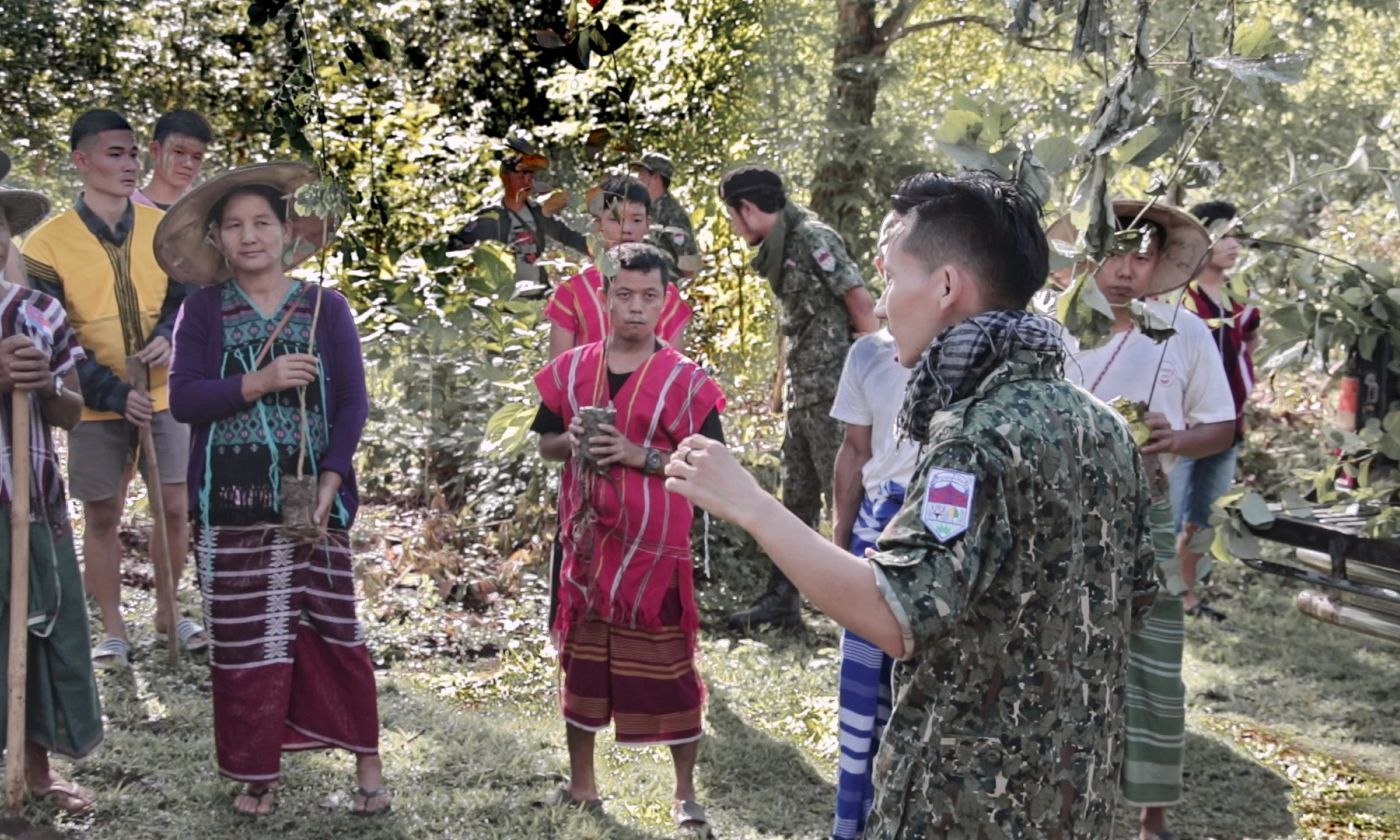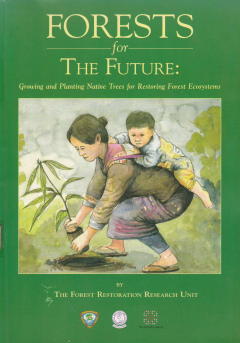
This project addresses the need for capacity-building, to improve management and restoration of forest ecosystems and resources, in the south-eastern region of Myanmar, known locally as Kawthoolei. It fulfills many of the goals of forestry authorities there to:
- improve local livelihoods
- enhance human security
- conserve biodiversity
- promote ecosystem services
- encourage sustainable development
- empower local participation in decision making and
- promote public awareness of environmental issues in forest areas
Forest restoration is central to the achievement of several of the region's forestry policies, with the immediate aim to restore at least 2 sq km of forest across 7 districts over the next 5 years. Restoration will involve not only planting teak, but also diverse mixes of native forest tree species, for recovery of biodiversity and watershed functions and to contribute towards climate-change mitigation.
Achieving this goal will depend on stakeholders having the skills and knowledge to run tree nurseries and make sensible decisions about species choices, plantation design, maintenance of planted trees, nurturing of natural regeneration and monitoring results for adaptive management.
Specific Objectives
1. Compile curricula —appropriate for local conditions, for training forestry personnel and the younger generation (Junior College - level) in forest restoration and sustainable management.
2. Build capacity amongst local trainers and teachers—to implement the curricula, by providing training and by developing teaching materials. This was achieved during second phase of the project in 2023.
Phase I of the project was completed on Jan 31st 2022. A survey of stakeholder needs was performed and a "needs assessment" report compiled, defining the level and type of education required and the subject matter to include in the proposed curriculum. Subsequently, online stakeholder workshops were held, to discuss the results, resulting in the drafting of two curricula: i) a one semester (18 week) 3-credit Junior College (JC) course and ii) a 10-day intensive practical training course for KFD junior staff. The drafts were refined and approved during the final stakeholders' workshop, during which future needs, to implement them, were identified.
Phase II included the development of teacher's manuals for both courses in Burmese and English, detailing modules for each. These can be accessed through the download panel on this page. A simplified cartoon book, aimed at the younger generation, was also produced in Burmese. The project concluded with an 8-day workshop at FORRU-CMU in Chiang Mai in July 2023, to train KFD trainers and JC teachers how to use the materials, to implement their respective courses. The courses were well received by the participants and we look forward to hearing how students react to the course materials as they experience them.
11: Forests for the Future: Growing and Planting Native Trees for Restoring Forest Ecosystems
All over Thailand, people who are concerned about the rapid destruction of the Kingdom's once magnificent forest are banding together to plant trees. Gone are the days when plantations of pines...

